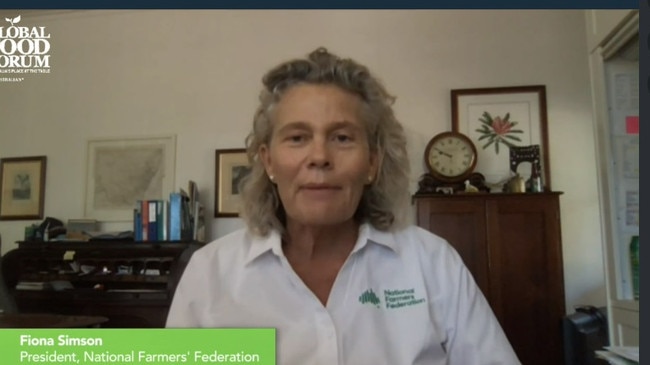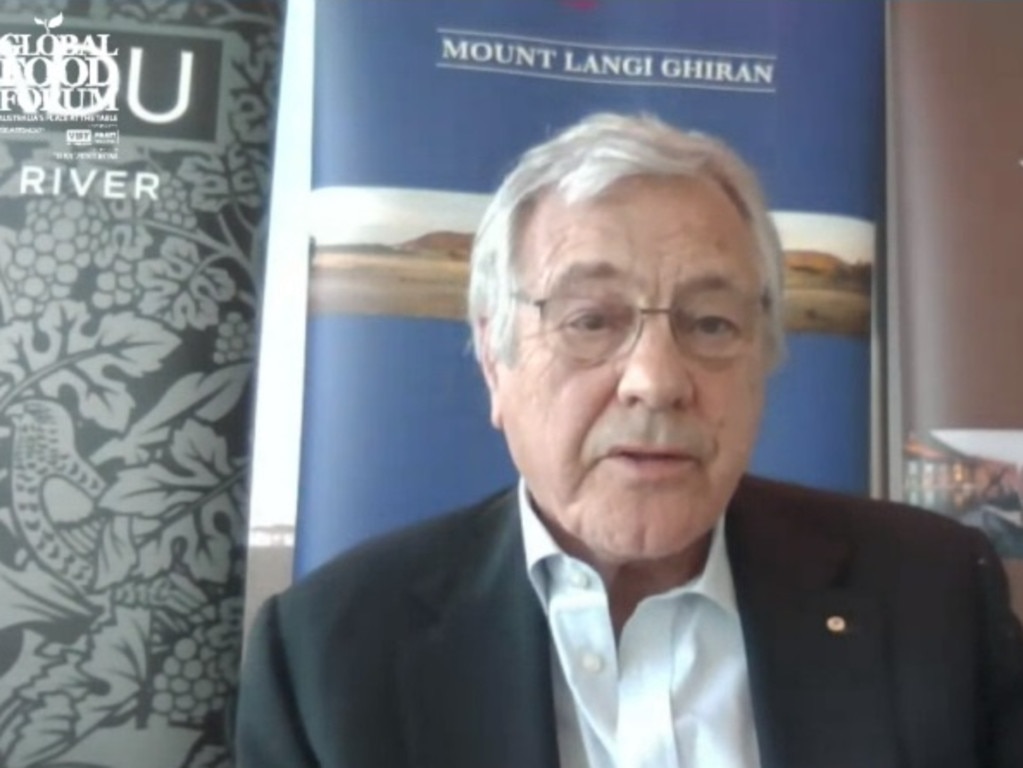Australia needs to stay friendly with China for agriculture export to double by 2030
The National Farmer Federation wants to double the value of Australian agriculture exports by 2030, with China playing a big role.

Australia will need to maintain its close trade relationship with China despite escalating tensions between Canberra and Beijing, as well as open up new markets if the agribusiness sector is to double in value by the end of the decade.
The National Farmers Federation has unveiled an ambitious goal for agriculture to be a $100bn export industry by 2030, almost doubling its current size, as the sector recovers from severe drought and battles a series of stoushes with its biggest trading partner.
NFF president Fiona Simson is confident Australia’s agribusiness sector still can reach the $100bn target, saying it is about creating more value at the farm gate, not growing more produce and creating bigger farms.
“It’s about the value of production at the farm gate. Historically farmers have been price takers; in Australia we have been big producers of bulk commodities and we have very little say over the prices,” Ms Simson said.
“Now, a lot of farmers are taking the opportunity to try to move up the value chain a bit and create more value at the farm gate; that’s what 2030 and $100bn is all about.
“We used to talk about farmers, processors and retailers. But now those lines are blurring and farmers are finding if they move up the value chain a little bit and process it themselves … that (is) creating all this value that previously left the farm and was captured by someone else.”
But Rabobank food and agribusiness research division general manager Tim Hunt said China still played an important role of delivering greater value to farmers.
During much of the past decade China’s rapidly expanding middle class has prized Australia’s clean and green image, delivering riches to many companies.
“China has been unique in the past decade for its willingness to pay good prices because they recognise the quality of our product,” Mr Hunt said. “They accept and value the provenance of our product in a way that the US and European markets never have, and they will pay for value adding of food in Australia in a way that no market ever has before.”
But this year relations between China and Australia have soured. Chinese authorities have targeted Australian soft commodities, from barley to wine, following outrage over Canberra’s push for an inquiry into the COVID-19 outbreak, as well as foreign interference legislation and proposed foreign relations bills.
Mr Hunt said a big challenge was to ensure trade between the two countries continued and to seek new markets to deliver greater value to Australian agriculture.
“So our challenge is to maintain our place in China and open up new markets where we can unlock the value going forward. And value for things … including producing and proving the sustainability of our food. That is something that we are going to have to work hard on.
“We have to identify the consumers in the markets who will recognise the value of sustainably produced food and pay for that because that is not ubiquitous in the Asian markets we service.”
Mr Hunt said adopting greater use of technology would play an important role in delivering more value to the agribusiness sector. “Technology is going to play a big role — not just in enhancing production efficiency but also the traceability of our food and hence our ability to prove (how) it was produced and play into that big story of extracting the value … that is so important in this industry.”








To join the conversation, please log in. Don't have an account? Register
Join the conversation, you are commenting as Logout